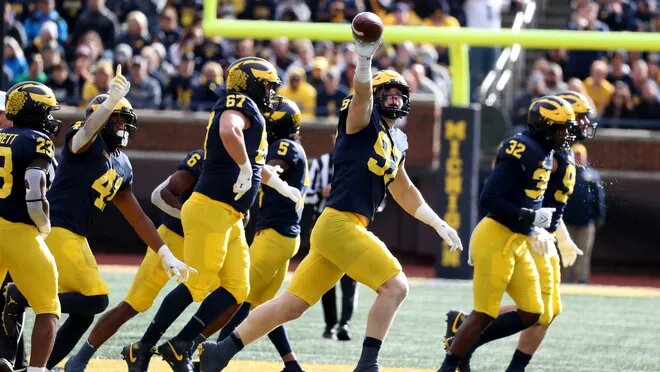
In a startling turn of events, the Michigan Wolverines football program finds itself grappling with the departure of three key players, each bidding farewell to the team due to what they perceive as inadequate compensation. This exodus sheds light on the ongoing debate surrounding athlete compensation in collegiate sports and underscores the challenges faced by student-athletes balancing academics, athletics, and financial stability.
The departure of these players, whose identities are yet to be revealed, comes as a blow to the Wolverines’ football program. Their contributions on the field have been instrumental in the team’s success, making their absence keenly felt by teammates, coaches, and fans alike.
While the specifics of the players’ grievances have not been publicly disclosed, it’s evident that financial considerations played a significant role in their decisions to part ways with the team. The issue of athlete compensation in college sports has long been a contentious one, with critics arguing that student-athletes deserve more than just scholarships for their efforts on the field.
For many student-athletes, particularly those from low-income backgrounds, the financial strain of attending college while also devoting countless hours to their sport can be overwhelming. Despite the demands placed on them, NCAA regulations prohibit student-athletes from receiving compensation beyond scholarships, leaving them with limited options to supplement their income.
The departure of these key players from the Michigan Wolverines serves as a poignant reminder of the economic disparities that exist within college athletics. While revenue generated by collegiate sports programs continues to soar, the financial benefits often fail to trickle down to the athletes themselves, many of whom struggle to make ends meet.
In recent years, there has been growing momentum behind calls to reform the NCAA’s rules regarding athlete compensation. Advocates argue that student-athletes should be allowed to profit from their name, image, and likeness (NIL), enabling them to capitalize on endorsement deals and other opportunities without jeopardizing their eligibility.
While steps have been taken to address some of these concerns, including recent changes to NIL rules allowing athletes to monetize their personal brands, the issue of fair compensation for student-athletes remains unresolved. As evidenced by the departure of these three key players from the Michigan Wolverines, the current system is failing to adequately support the financial needs of student-athletes, leading some to seek opportunities elsewhere.



Be the first to comment